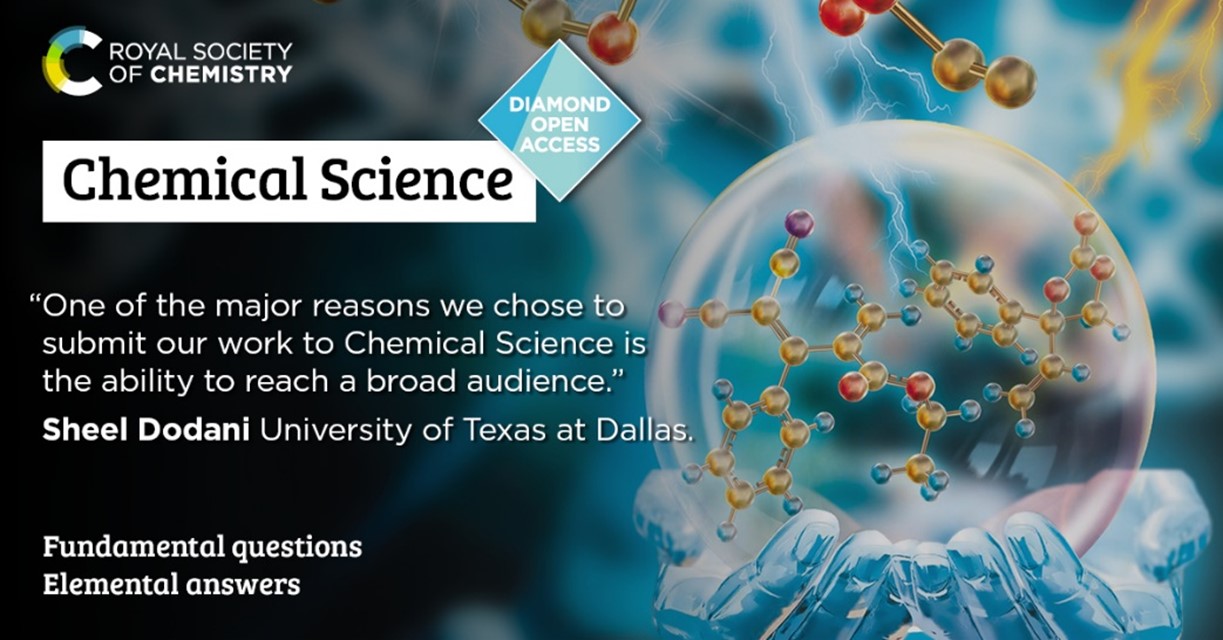To further thank and recognise the support from our excellent reviewer community, we are highlighting reviewers who have provided exceptional support to the journal over the past year.
This month, we’ll be highlighting Masha Kamenetska, Sarah Pike, Lutz Ackermann and Timothy Noel. We asked our reviewers a few questions about what they enjoy about reviewing, and their thoughts on how to provide a useful review.

Masha Kamenetska, Boston University. Professor Kamenetska’s lab is pursuing experimental approaches to uncover structure-function relationships in single molecule systems with a focus on charge transport and force measurements of metal-molecule junctions.

Sarah Pike, University of Birmingham. Dr Pike’s research is in the field of synthetic supramolecular chemistry and focuses on the creation of new helical oligomers (foldamers) that adopt well-defined secondary structures in solution. They are particularly interested in exploring new methods for controlling their folding behaviour and in investigating their ability to function as responsive sensors and catalysts.

Lutz Ackermann, University of Göttingen. The development and application of novel concepts for sustainable catalysis constitutes Professor Ackermann’s major current research interests. He is fascinated by molecular transformations enabled through the activation of strong (C-H) bonds and applying environmentally-benign electricity to drive chemical reactions.

Timothy Noel, University of Amsterdam. Dr Noel is a researcher in the field of synthetic organic chemistry and technology, with a particular interest in the delicate synergy between the two fields.
What encouraged you to review for Chemical Science?
Sarah Pike: Chemical Science is a top tier journal, and one that I read regularly as it publishes a lot of exciting and high quality work that is relevant to my group’s research interests, so it is a real pleasure to review for this journal.
Lutz Ackermann: To me, reviewing is a valuable service to the scientific community. By reviewing manuscripts, I can actively contribute to maintaining the integrity and quality of scientific publications. At the same time, I can sharpen my critical thinking and analytical skills.
Timothy Noel: Chemical Science stands out as a top-tier journal in the field of chemistry, and its innovative diamond open access strategy is truly unparalleled. The community should rally behind this initiative to ensure the success of this exceptional publication.
What do you enjoy most about reviewing?
Masha Kamenetska: I enjoy the debate that occurs between the authors, myself and other reviewers in the course of a review process.
Sarah Pike: Being one of the first people to see new and cutting-edge science is exciting and occasionally being able to offer additional insight to the authors is really rewarding.
Lutz Ackermann: Reviewing manuscripts enables me to engage with the latest scientific findings. It offers an opportunity to delve into diverse topics, learn about different methods and tools.
Timothy Noel: What I enjoy most about reviewing papers for journals is the opportunity to support the best work in the field and contribute to maintaining the highest standards of quality. I take pride in providing constructive feedback that can help improve the manuscript, and ultimately enhance the value of the publication.
What are you looking for in a paper that you can recommend for acceptance in Chemical Science?
Timothy Noel: What I appreciate most in papers that get accepted is a combination of meticulous attention to detail and originality. I enjoy reviewing manuscripts that have a well-developed substrate scope, detailed mechanistic studies, and other technical aspects that have been executed with precision. At the same time, I also value papers that offer a fresh perspective or novel insights into a particular field. I find that this balance between technical excellence and innovative ideas is what makes a manuscript truly exceptional and deserving of publication.
Do you have any advice to our readers seeking publication in Chemical Science on what makes a good paper?
Lutz Ackermann: Ensure that your research presents a novel and significant contribution to the field. Meaningful figures are becoming increasingly important also. Clearly articulate the unique aspects of your findings and explain how it advances the existing knowledge.
Masha Kamenetska: A good paper is clearly written and has a good narrative. It provides details about methods and measurements, but also provides a broader perspective on the implications of the findings.
What makes a paper truly stand out for you when reviewing a paper?
Sarah Pike: In my opinion, a paper truly stands out when the science is excellent, the experiments well designed and the concept of the work is cutting-edge. Additionally, I look for thorough data analysis and good clear figures in the paper that better help the reader to understand the work.
Did reviewing for Chemical Science affect how you approached preparation of your recent publication with us?
Timothy Noel: My experience reviewing for Chemical Science has definitely influenced how I approach preparing manuscripts for publication. When submitting a paper to a journal, I make a real effort to adhere to the house style and ensure that our work is a good fit for the journal. I firmly believe that a successful submission requires meeting the standards of the target publication, and this includes factors such as technical rigor, clarity of presentation, and adherence to the journal’s guidelines. By reviewing for Chemical Science, I gained valuable insights into what the editors and reviewers look for in a manuscript, and this knowledge has helped me to fine-tune my approach to manuscript preparation and submission.
What has been your biggest learning point from reviewing?
Masha Kamenetska: Something I have learned in the course of reviewing is that writing a thorough, well-reasoned and considered review is hard work so I am always grateful to receive careful reviews of my own work.
What would you recommend to new reviewers to ensure their report is helpful?
Sarah Pike: I always give a paper a quick first read to gauge its relevance and impact to the field before going over it in much greater detail ahead of writing my report. It is important to remember to be kind when engaging with the reviewing process as the authors will have put a lot of time and energy into the study. My advice is to be constructive but kind.
Tune in next month to meet our next group of #ChemSciReviewers!
If you want to learn more about how we support our reviewers, check out our Reviewer Hub.
Interested in joining our ever-growing reviewer community? Apply here now!






























